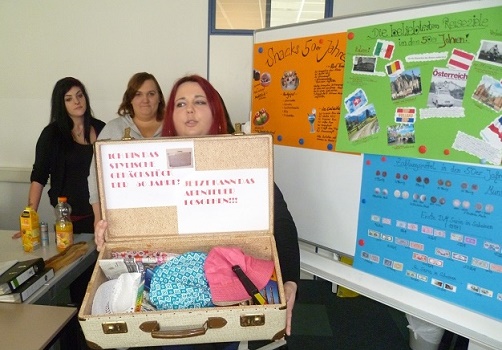
On the mountain. (usc) The European Social Fund (ESF) promotes reintegration into the labor market at great financial expense. 22 women and men are currently taking part in a nine-month training course to become nursing assistants at the ISE Language and Education Center in Amberg. There are very good career prospects.
The Amberg-Sulzbach job center provides co-financing. Its deputy head, Ralf Doschat, measures supervisor Heribert Farnbauer and the employment placement team leader, Rainer Liermann, got a personal impression of the training at the end of the first module of a total of three modules.
Liermann emphasized during the discussion of the measures that the aim of this measure should also be to arouse interest among course participants in a subsequent one- or three-year training course to become a geriatric nurse. The need for such skilled workers is increasing from year to year. As course leader Thomas Klein explained, two or three participants were already considering this step. It is thanks to ISE that so many people are sticking with this course, which is now in its seventh year, Doschat noted happily. It is important that ISE and job centers pull together, emphasized Liermann.
As experience from previous qualifications shows, a certain number of course participants in the ESF nursing qualification transfer to the ISE vocational school for geriatric care and geriatric care assistance. Another incentive to continue training at the ISE vocational school is the fact that, in view of demographic change, course graduates have good career prospects, for example in nursing homes or in outpatient care, and can then finance their own living.
At the end of the first training module, the course participants spent a lot of time preparing a journey back in time to the 1950s in their free time and presented their project work to the class and the job center. The 1950s because, with their knowledge of this decade, nursing staff can better care for older people in need of care who lived during this time, emphasized course leader Thomas Klein. The course participants dealt intensively with this decade, with its music, fashion, travel and eating habits, raising children, furniture, media, contemporary history and advertising.
For the report
Hubert Uschald

